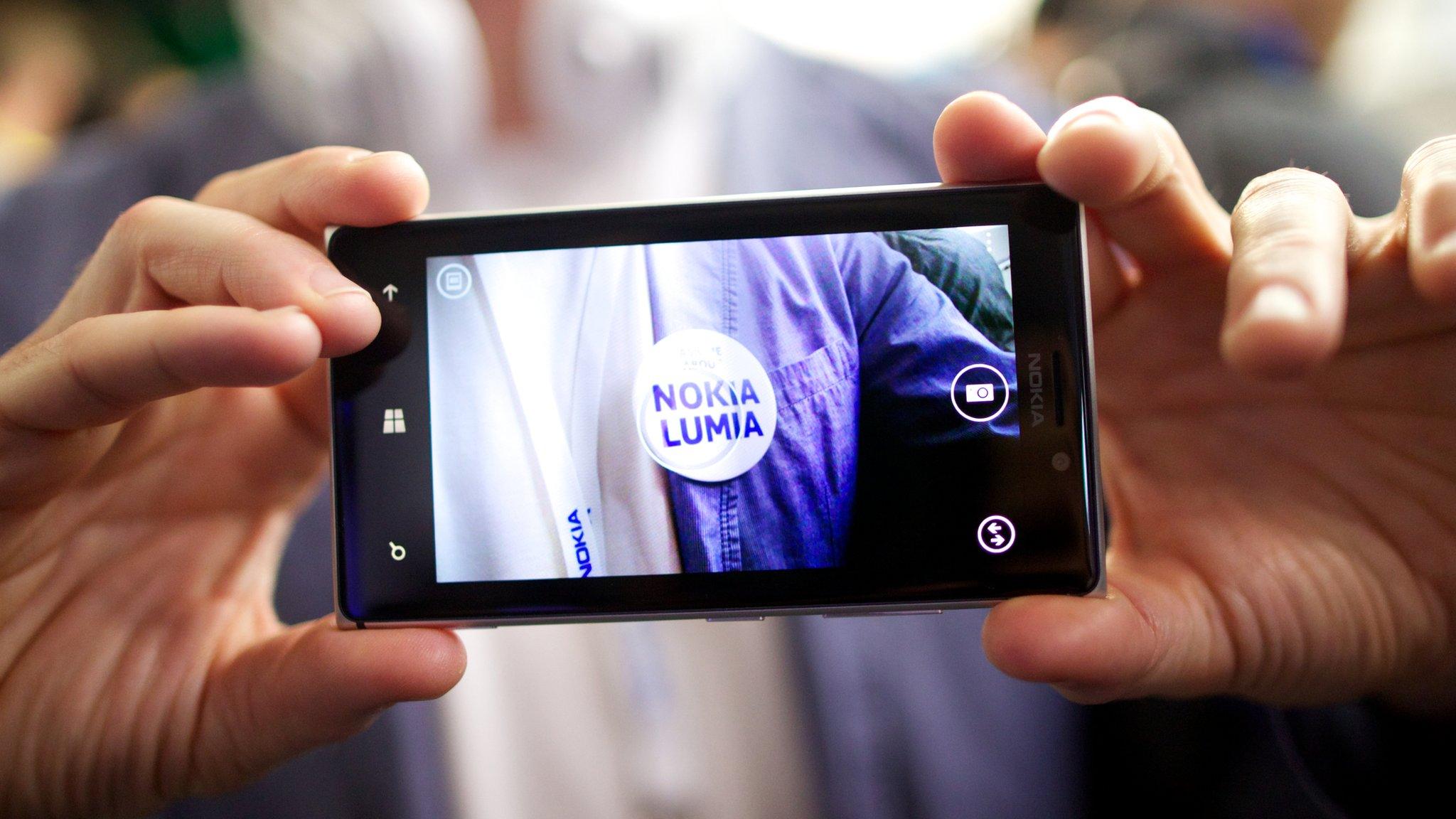Nokia's brand name merry-go-round
- Published
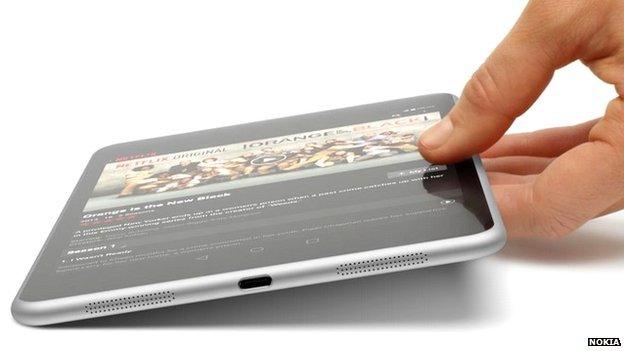
The Nokia N1 is a new venture into the tablet market
This week one of the best known names in technology launched a new product, the N1 Tablet.
It comes from Nokia, the Finnish company that once had 40% of the mobile phone market.
You can already buy another Nokia tablet, the Lumia 2520, and of course any number of Nokia phones.
But these all come from the US's Microsoft which acquired the Nokia mobile phone business for £4.6bn last year.
Confused? I'm sure you are not alone.
Which all begs a few questions - such as what exactly are you getting when you buy a Nokia device, what does the brand now mean and what did Microsoft think it was getting for its money?
Finland's Nokia, a company which can trace its history back to 1865, is still a sizeable telecommunications business providing network equipment and mapping services.
But the sale of the division which made its brand a household name appeared to signal the end of its ambitions to be a consumer business.
Now, just months after that sale was completed it is marching back onto the consumer stage with a tablet.
"Many people think we have disappeared off the planet," admits Sebastian Nystrom, Head of Products at Nokia Technologies. "That's not true."
I put it to Mr Nystrom that consumers were going to be confused but he did not see a problem: "I think people are used to the fact that Nokia provides a broad range of devices."
He even maintained that it was a strength for his company that Microsoft was also producing products which bore the Nokia name: "Microsoft's success is really our success."
Microsoft is saying little on the record about the re-emergence of Finnish Nokia as a consumer brand.
"This is a Nokia announcement and is not associated with Microsoft," reads its official statement.
Extraordinary decline
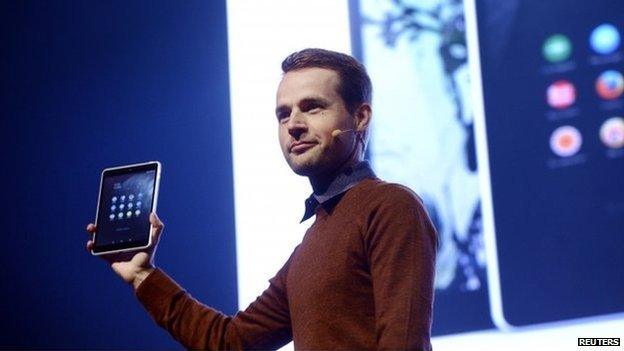
Sebastian Nystrom says Microsoft's success is Nokia's success
But here's a funny thing - having licensed the Nokia brand as part of the takeover, Microsoft seems to be in a hurry to drop it again as quick as possible.
It is already disappearing from the top-end Lumia range, and a source told me that it was "safe to assume" that it would also go from the budget Asha and Nokia X phones that are still very popular across much of the developing world.
Last year, Nokia was the second most trusted brand in India, according to a Nielsen survey, but Microsoft will now rely on the Lumia and Asha brands to build a relationship with Indian consumers.
What all this signals is that the value of the Nokia brand has suffered a quite extraordinary decline.
Interbrand, which compiles an annual list of the world's most valuable brand, had Nokia at number five with a brand value of $35bn in 2009.
The list for 2013, external, released last month, has it down at 57, valued at $7.5bn.
Even that looks high, considering that Microsoft apparently sees no value in continuing to use the name.
Interbrand's Chief Executive Jez Frampton says Nokia lost its way because it lost touch with what its customers wanted.
"Nothing kills a great brand faster than a bad product. They weren't delivering the kind of design, the kind of experience that customers wanted."
He says, however, that the value built up in the brand helped slow the decline of the business.
"A brand is a risk reduction mechanism - if you have a couple of bad products then the brand can help you through the bad times. It gave them protection for some time - unfortunately they didn't use that time to come back with the right product."
Comebacks are possible
In a fast moving market like mobile phones, brands can rise and fall in value very rapidly.
In 2009 Apple was far below Nokia in Interbrand's chart, down at number 20. In the latest chart, it is right at the top.
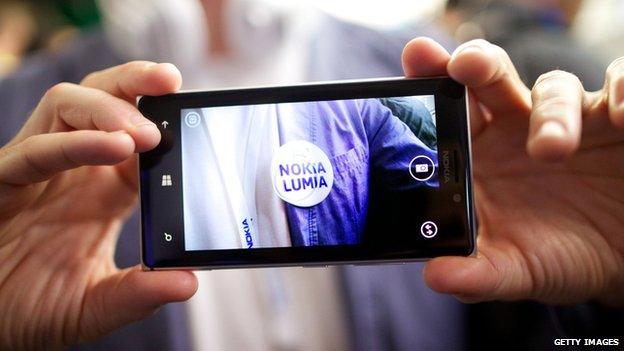
The Nokia Lumia name will soon become Microsoft Lumia
Other brands, like Blackberry to HTC, have also seen their value decline as the allure of the iPhone has outshone their offerings.
But can Nokia be rebuilt as a brand, not under Microsoft but by its original Finnish owners?
Looking back at once familiar names like Palm, Psion and Compaq, there is not a great record for technology brand comebacks.
But Nintendo is one example of a brand which is still held in affection despite periods when its products have failed to match those of its rivals.
Nokia has years of experience and plenty of engineering skills at its disposal as it attempts to reconnect with consumers.
But when it comes to marketing its new tablet, the strategy seems to be to copy the number one brand.
Visitors to the website promoting the N1 may think they have come to the Apple Store, so closely does the product and its marketing resemble that for the iPad Mini.
"What they have done with the communications package is say we are a me too company," says Jez Frampton.
"Great brands have a distinctive voice, they don't copy others - they stand out alone."
With millions still using Nokia phones, and many more nostalgic about phones which used to last a week without recharging, the name is not going to disappear in a hurry.
But a return to the glory days of 2009 when the brand was worth as much as Apple and Samsung combined seems a distant fantasy.
- Published18 November 2014
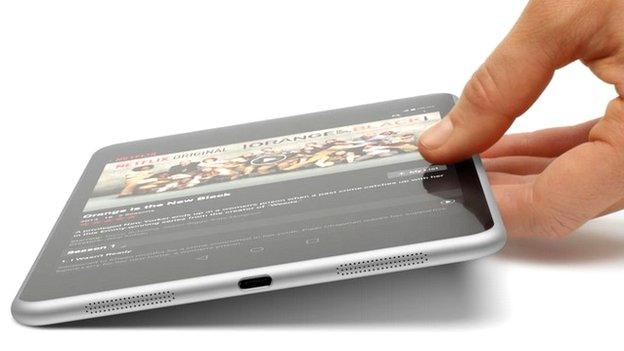
- Published23 October 2014
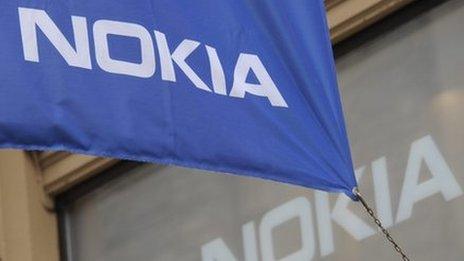
- Published22 October 2014
